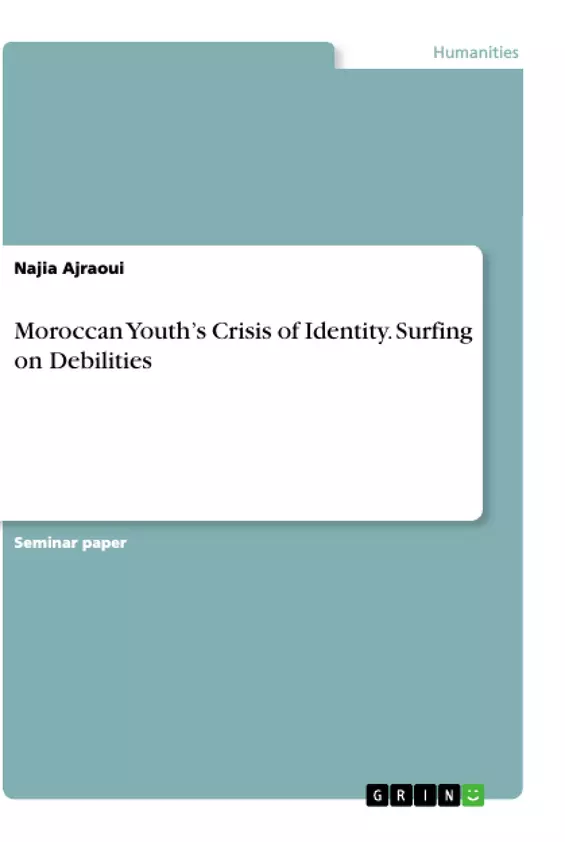This paper deals with the Moroccan youth’s crisis of identity. In the third millennium globalization permits the importation of goods and commodities from all over the world; and culture as well. If trade and industry constituted in the twentieth century an exclusively one-sided Western hegemony, culture as a soft power, penetrating continents from all sides, remains untractable and intangible for most.
It perniciously enters homes and minds, subverting local customs and beliefs, and is all in the more pervasive that those it targets are unaware of its influence. The first element it seems to undermine is nationalism. By reinforcing the sense of belonging to the same nation, culture and the nationalism it entails, it establishes a popular power that strengthens the ethnic identity of a people.
Geographical frontiers are being replaced by a sense of belonging to a virtual community which is supposed to hold the same opinions, to visualize the same news, to watch the same movies, and to listen to the same music. This fact is observable in young Moroccans’ changes of behaviour and perception of self. Their being online most of the time puts them in permanent contact, and from an early age, with other cultures that may become substitutes of their own, which may induce a sense of not belonging to their native culture, and alienation from the constituents of their identity as Moroccans.
Inhaltsverzeichnis (Table of Contents)
- Surfing on Debilities: Moroccan Youth's Crisis of Identity
- Globalization and the Erosion of Nationalism
- The Virtual Geography and the New Colonialism
- The Impact of the Internet on National Identity
- The Shift in Parental Function and Education
- The Role of Language in National Identity
- The Erosion of Moroccan Identity in the Third Millennium
Zielsetzung und Themenschwerpunkte (Objectives and Key Themes)
This article explores the impact of globalization on the national identity of Moroccan youth. It examines how the widespread use of the internet and the influx of foreign cultures through media have undermined traditional notions of nationalism and cultural belonging.
- The influence of globalization on nationalism and cultural identity
- The role of the internet in shaping a virtual community and challenging national boundaries
- The shift in parental function and the role of education in the digital age
- The impact of language on national identity and the use of language as a tool for cultural manipulation
- The erosion of Moroccan identity through the influx of foreign cultures and the adoption of foreign languages
Zusammenfassung der Kapitel (Chapter Summaries)
- The article begins by examining the concept of nationalism and its role in shaping national identity. It argues that globalization has eroded traditional notions of nationalism by creating a sense of belonging to a virtual community that transcends national boundaries.
- The article then discusses the impact of the internet on national identity, arguing that the virtual geography created by the internet has undermined the relevance of national boundaries and fostered a sense of cultural homogenization.
- The article further explores the shift in parental function and the role of education in the digital age. It suggests that the increasing influence of the internet and the adoption of new educational theories have diminished parental authority and led to a widening gap between generations.
- The article concludes by examining the role of language in national identity. It argues that globalization has utilized language as a tool for cultural manipulation, undermining the natives' sense of self-perception and fragmenting their cultural cohesion.
Schlüsselwörter (Keywords)
Globalization, nationalism, cultural identity, internet, virtual community, national boundaries, parental function, education, language, cultural manipulation, Moroccan identity.
- Arbeit zitieren
- Najia Ajraoui (Autor:in), 2016, Moroccan Youth’s Crisis of Identity. Surfing on Debilities, München, GRIN Verlag, https://www.hausarbeiten.de/document/984663


